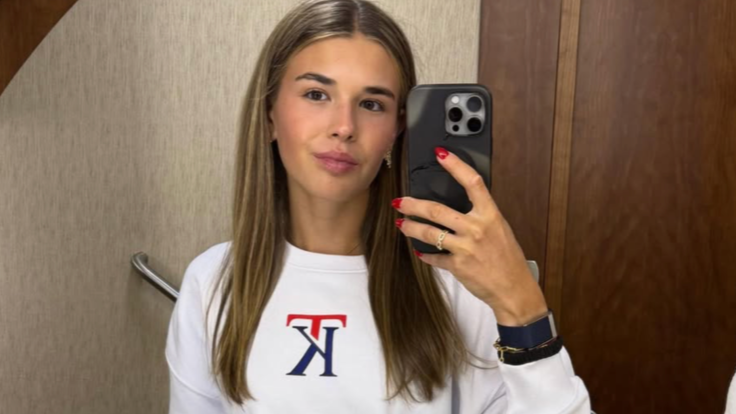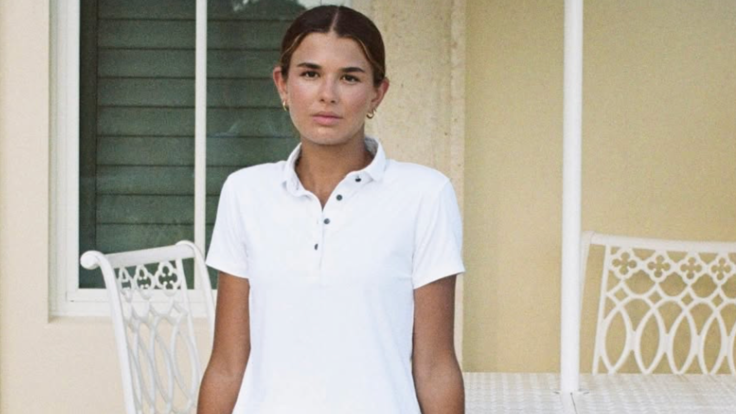10 Photos of Kai Trump – Is She the New Ivanka? US President's Granddaughter Launches Fashion Line With $130 Sweatshirt
The President's eldest granddaughter sells premium sweatshirts from a presidential backdrop — and the optics are as contested as the price tag

Kai Trump's new 'KT' sweatshirts arrive with a presidential backdrop, but the price and the politics are already proving controversial.
Kai Trump, the 18-year-old granddaughter of the US President, quietly launched a namesake apparel collection of monogrammed pullovers in late September 2025 and promoted them from high-visibility settings, including the White House lawn and presidential travel.
The collection centres on a simple 'KT' motif and three core colours; each sweatshirt is listed at £96.45 ($130).
The launch has been driven through Kai's social channels, where she models the pieces and directs followers to her online store. Supporters praise the quality and the aesthetic; critics question the optics of using proximity to government property and access for commercial gain.
Launch and the White House Backdrop
Kai announced the merchandise on her official site and social media, describing the collection as a long-held ambition. 'This collection is something I've dreamed about for a long time, and I'm so grateful it's finally here', her store copy reads. The catalogue currently comprises boxed women's and 'unisex' pullover silhouettes in navy, white, and black.
Shortly after the release, she posted imagery and reels that show the sweatshirts photographed on the White House grounds and worn while traveling with the presidential entourage.
Those visuals amplified reach overnight; her Instagram, YouTube, and TikTok followings magnify the commercial effect of a single post. The content itself, uploaded by Kai to platforms she controls, is the primary source for the promotional material.

The staging drew immediate notice because of its setting. Journalists and ethics commentators have asked whether the use of official spaces for commerce, even indirectly, blurs public and private lines. While officials emphasise there is no formal endorsement, the images' distribution from such a visible backdrop has fuelled scrutiny.

Pricing, Production and Public Reaction
At £96.45 ($130) per sweatshirt, Kai's items sit in the premium-merch bracket rather than the typical collegiate or campaign hoodie price band. The shop lists fabric and design details alongside a short founder's statement emphasising 'thoughtful fabric' and 'graceful lines'. That framing seeks to position the garments as lifestyle pieces rather than mere fan merchandise.


Public reaction was split along predictable lines. Admirers called the launch 'entrepreneurial' and lauded Kai's control of her own platform; detractors raised two persistent lines of objection. First, some social commentators argued that the branding borrows too closely from existing marks and asked whether the monogram was distinctive enough. Second, and more politically charged, was the critique that photographs taken on or near official property convey an implied advantage that ordinary entrepreneurs do not enjoy.

Is Kai the New Ivanka? Privilege, Branding and Political Lines
The trajectory that has placed Kai in the commerce spotlight will sound familiar to observers of the Trump family. Ivanka Trump established a namesake fashion and accessories business before becoming a public adviser in Washington; her label grew quickly, leveraged department-store distribution, and then contracted amid political backlash and retail pullback in 2017–18.

Ivanka's own brand site and archived statements set out an explicitly commercial mission, 'a brand, by women for women', and later acknowledged shifting focus as public responsibilities intervened.
There are telling contrasts. Ivanka built a global wholesale and retail operation over many years, with an entire infrastructure that included partnerships with large department stores and wholesale buyers, and she was a seasoned business figure by the time politics became central to her public profile.
Kai, by contrast, is launching a compact direct-to-consumer collection anchored in social media and influencer economics; the product range is narrow, and the operation appears to be digitally native rather than storefront heavy. That difference maps a broader shift in how young founders monetise name recognition today.
Kai's launch is not simply a fashion story: it is an early-career case study in modern branding's collision with political life. Whether the KT sweatshirt becomes a long-running label or a momentary social-media phenomenon will depend on product quality, supply-chain transparency, and how the family chooses to separate commercial and civic spheres.

Kai's collection is on sale now — and the conversation it has provoked is likely to outlast any single season.
© Copyright IBTimes 2025. All rights reserved.





















